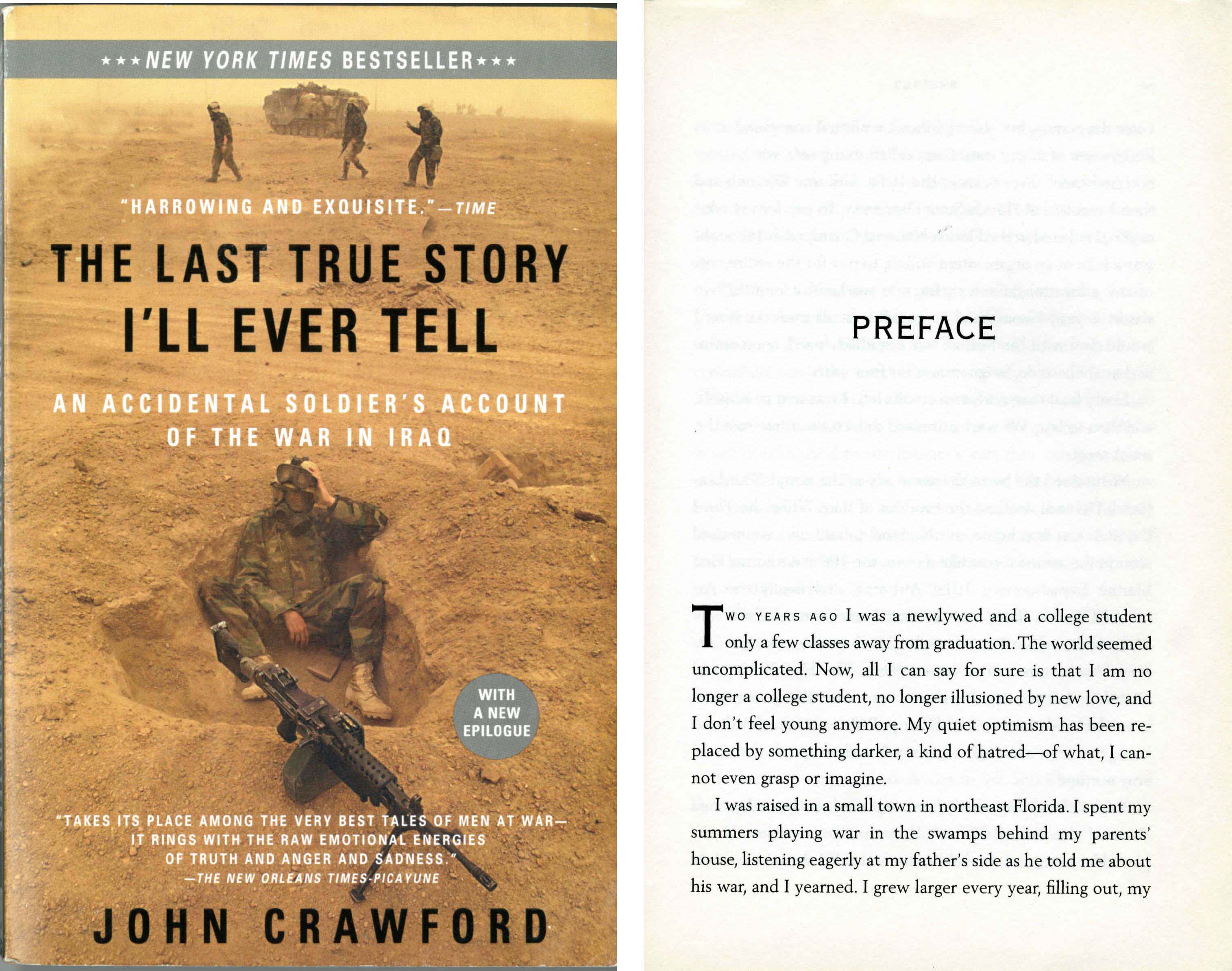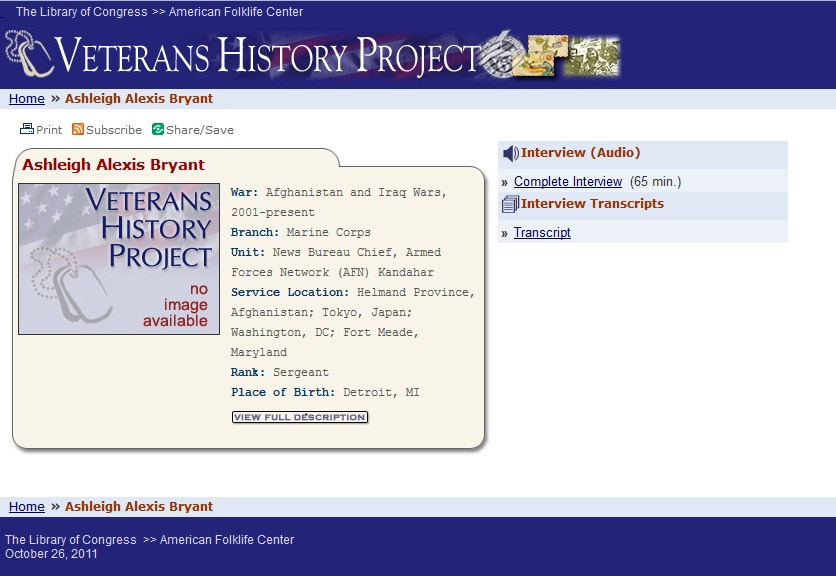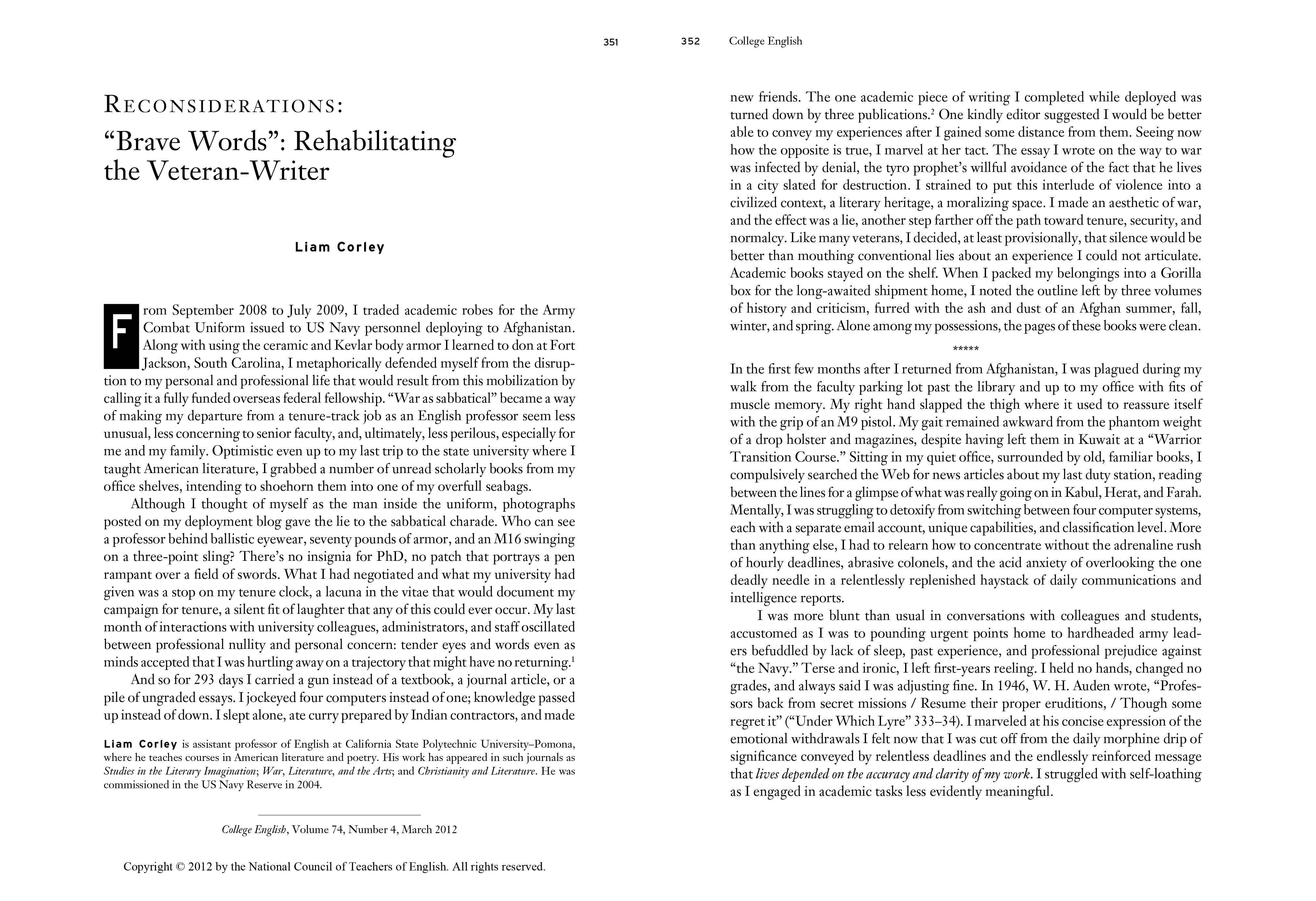GENRES IN CONVERSATION
| Reflective Writing | Informative Writing | Analytical Writing | Evaluative Writing | Problem-Solving Writing | Argumentative Writing |
In the post-9/11 era, stories of returning home from war are gaining attention as more and more veterans decide to speak out and share their experiences. In the documents shown here — a memoir, an interview, and a journal article — writers use three distinct genres to reflect on the lasting effects of the trauma of war, regardless of one’s life predeployment. Although all three genres focus on veterans’ experiences, they employ distinct visual forms and follow specific genre conventions.
Click on the images below to read the full text.



Thinking About Genre
Question
What kinds of genres seem best suited for the purpose of writing to reflect? Why? What aspects of creative genres (nonfiction essay, poetry, fiction, satire) make them work well for this purpose?
Question
These documents are all written from the first-person point of view. What makes this perspective particularly effective when writing to reflect? How does the first-person point of view help readers connect to the topic?
Question
What are some expectations readers have for reflective writing? How well does the design of each genre fit these expectations?